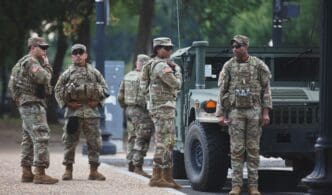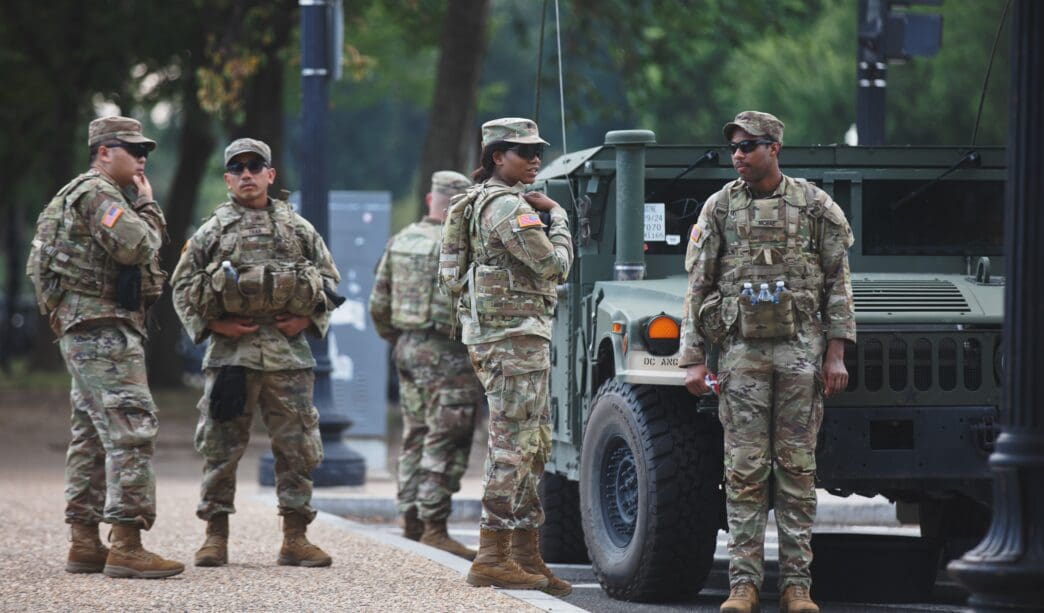Executive Summary
The Story So Far
Why This Matters
Who Thinks What?
President Donald Trump has announced plans to deploy federal troops or law enforcement agents to Portland, Oregon, Chicago, Illinois, and Memphis, Tennessee, sparking significant pushback from state and local officials. The move follows recent confrontations between federal agents and protesters near an immigration facility in suburban Chicago and President Trump’s declaration to protect U.S. Immigration and Customs Enforcement (ICE) facilities in Portland, which led to a lawsuit from Oregon. In Memphis, federal authorities, including the National Guard, are expected to arrive to address crime concerns.
Portland: Federalization and Legal Challenge
President Trump stated on social media that he was directing the Department of Defense to “provide all necessary Troops to protect War ravaged Portland,” specifically to safeguard U.S. Immigration and Customs Enforcement facilities. This announcement was met with strong opposition from Oregon’s Democratic Governor Tina Kotek, who accused Trump of abusing his authority and asserted that the city was capable of managing its own affairs.
Governor Kotek emphasized that there was “no insurrection” and “no threat to national security” in Portland. Despite her objections, Defense Secretary Pete Hegseth issued a memorandum announcing the federalization of 200 members of the Oregon National Guard for a period of 60 days.
In response, the city of Portland and the state of Oregon filed a lawsuit, alleging that the Trump administration had overreached its mandate by federalizing the state’s National Guard. They argued that the action breached constitutional principles and risked escalating unrest, though the White House defended the move as lawful given “months of violent riots” and necessary to enhance safety.
Recent demonstrations in Portland have primarily focused on the area around the ICE building, leading to confrontations where both federal agents and protesters have reported injuries. One individual was arrested by federal law enforcement during a brief clash outside the facility.
Chicago: Immigration Enforcement Clashes
In Chicago, federal authorities have used chemical agents, including pepper balls and tear gas, against over 100 protesters outside an ICE building in Broadview. These confrontations occurred amid a surge of immigration enforcement activity that commenced earlier this month, with agents responding to attempts by some protesters to block vehicles.
The mayor of Broadview has criticized ICE’s actions, stating that they have endangered local police, firefighters, residents near the facility, and the protesters themselves. Activists and family members of detainees have also voiced concerns that the facility, intended for processing arrestees, is operating as a de facto detention center with inhumane conditions.
President Trump had previously threatened to deploy the National Guard to Chicago, but this action has not yet been implemented.
Memphis: Crime Crackdown and Community Concerns
Tennessee’s Republican Governor Bill Lee has confirmed that federal authorities, including immigration and drug enforcement agents, are expected to arrive in Memphis starting this upcoming week. This follows President Trump’s earlier announcement of creating a task force of federal law enforcement agencies to combat crime in the city, which has experienced high numbers of violent crimes.
Governor Lee indicated that he anticipates no more than 150 National Guard members will be sent to Memphis, noting that they will not be making arrests and will remain unarmed unless requested by local authorities. Additionally, 300 Tennessee Highway Patrol troopers are expected to be deployed to the region.
The planned federal presence has prompted concerns among Latinos in Memphis regarding a potential increase in ICE agent activity and detentions. Local protests have also emerged, with dozens marching to City Hall to argue that Memphis needs more funding for education, crime prevention, youth services, and hospitals, rather than federal troops and agents.
Outlook
The planned and ongoing federal deployments across Portland, Chicago, and Memphis highlight a contentious approach by the Trump administration to address issues ranging from civil unrest to crime and immigration enforcement. These actions have consistently met with significant resistance from state and local leaders, raising fundamental questions about federal overreach and local autonomy in managing public order and community needs.








